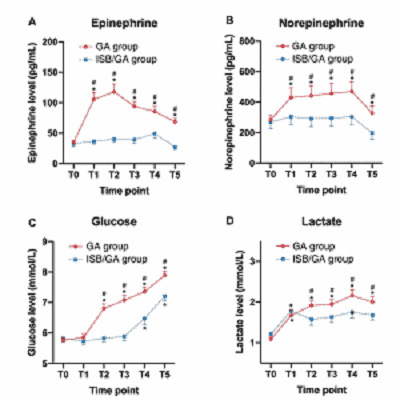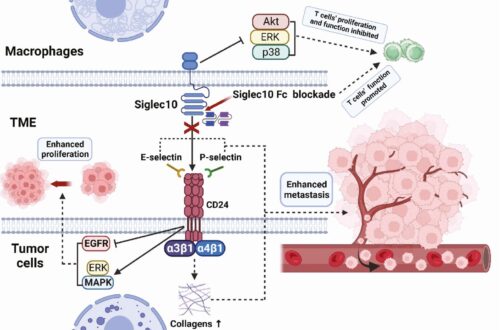
Interscalene Brachial Plexus Block with General Anesthesia in Arthroscopic Shoulder Surgery
Announcing a new article publication for BIO Integration journal. In this article the authors Daowei Lin, Zhixiao Han, Yanni Fu, Xiaoqiu Zhu, Jin Li, Hui Xu, Jing Wen, Fei Wang and Mingyan Guo from Sun Yat-sen University, Guangdong, China, The First Affiliated Hospital of Zhengzhou University, Zhengzhou, Henan, China and University of Virginia, Charlottesville, VA, USA discuss how interscalene brachial plexus block combined with general anesthesia attenuates stress and inflammatory response in arthroscopic shoulder surgery.
In arthroscopic shoulder surgery, general anesthesia (GA) is the common method of anesthesia. Recently, the combined usage of interscalene brachial plexus block with general anesthesia (ISB/GA) was reported to have a lower incidence of adverse side effects than GA alone. However, to date, no study has compared stress and inflammatory responses between these two methods. Since stress and inflammatory responses are critical on intraoperative management and postoperative recovery, the authors of this study integrated the laboratory and clinical methods and compared the stress and inflammatory factors, such as epinephrine, norepinephrine, glucose, lactate, inflammatory factors tumor necrosis factor α (TNF-α) and interleukin 6 (IL-6), as well as the clinical outcomes to determine whether ISB/GA provides an advantage on stress and inflammatory inhibition.
Data showed that ISB/GA resulted in significantly lower epinephrine, norepinephrine, and glucose levels perioperatively. Six hours after operation, the TNF-α and IL-6 levels were also significantly lower in the ISB/GA group. ISB/GA patients had lower blood pressure, a more stable heart rate, lower visual analog scale score, and less opioid consumption during and after surgery. The results indicate that ISB/GA is a better choice for arthroscopic shoulder surgery, owing to less stress and inflammatory responses during and after operation, which provides better clinical outcomes.
Article reference: Daowei Lin, Zhixiao Han, Yanni Fu, Xiaoqiu Zhu, Jin Li, Hui Xu, Jing Wen, Fei Wang and Mingyan Guo, Combination of Interscalene Brachial Plexus Block with General Anesthesia Attenuates Stress and Inflammatory Response in Arthroscopic Shoulder Surgery. BIO Integration, 2021, https://doi.org/10.15212/bioi-2021-0013
BIO Integration is fully open access journal which will allow for the rapid dissemination of multidisciplinary views driving the progress of modern medicine.
As part of its mandate to help bring interesting work and knowledge from around the world to a wider audience, BIOI will actively support authors through open access publishing and through waiving author fees in its first years. Also, publication support for authors whose first language is not English will be offered in areas such as manuscript development, English language editing and artwork assistance.
BIOI is now open for submissions; articles can be submitted online at:
https://mc04.manuscriptcentral.com/bioi
Please visit www.bio-integration.org to learn more about the journal.
Editorial Board: https://bio-integration.org/editorial-board/
Please visit www.bio-integration.org to learn more about the journal.
Editorial Board: https://bio-integration.org/editorial-board/
BIOI is available on the IngentaConnect platform (https://www.ingentaconnect.com/content/cscript/bioi) and at the BIO Integration website (www.bio-integration.org).
Submissions may be made using ScholarOne (https://mc04.manuscriptcentral.com/bioi).
There are no author submission or article processing fees.
Follow BIOI on Twitter @JournalBio; Facebook (https://www.facebook.com/BIO-Integration-Journal-108140854107716/) and LinkedIn (https://www.linkedin.com/company/bio-integration-journal/).
ISSN 2712-0074
eISSN 2712-0082




